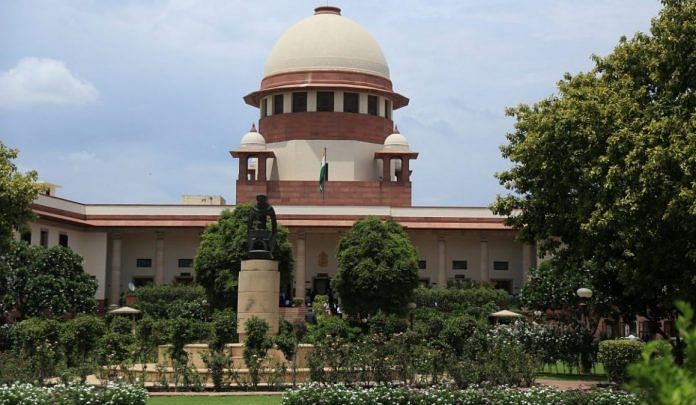The landmark ruling will keep expanding the landscape of civil rights in the country.
On 24 August 2017, nine judges of the Supreme Court unanimously ruled that privacy is a fundamental right under the Indian Constitution.
Since then, the landmark ruling has virtually become the new handbook on constitutionalism in India and civil liberties discourse. It has replaced the 1978 ruling in Maneka Gandhi v. Union of India, which was until now the cornerstone of personal liberties.
Indians were not introduced to privacy as a fundamental right only through K. Puttaswamy v. Union of India case. The right was acknowledged by the judiciary itself in various forms in over half a dozen cases.
Also read: “Right to privacy is protected under Articles 21 and Part-III of the Constitution”
So, what is so momentous about this nine-judge bench ruling?
The landmark ruling went much beyond affirming privacy as a fundamental right and restructured our understanding of everything that is in the Constitution.
For the court itself, there will be some serious course correction in order.
For a start, the privacy ruling itself overruled ADM Jabalpur v. Shivkant Shukla, the judiciary’s blunder that upheld the presidential in order to impose Emergency in the country.
The ruling also pretty much said that Section 377 criminalises consensual same-sex intercourse and does not have much constitutional ground to stand on. The case for decriminalising homosexuality was also built almost entirely on this ruling.
The court set Hadiya free holding that “the ability to make decisions on matters close to one’s life is an inviolable aspect of the human personality”, an assertion it made in the privacy ruling.
Also read: Privacy is a fundamental right, Supreme Court rules
Indira Jaising has repeatedly referred to the privacy ruling to bring a fresh challenge to the legality of beef bans in various states.
In the Aadhaar case, senior advocate Shyam Divan who led the arguments for the petitioners began his case by a reading of the privacy ruling. The case remains the foundation for debate on legitimacy and extent of state surveillance, and the relationship between state and individual liberty.
The foreseeable future and beyond
However, the ruling’s impact will not be only on gender, LGBT rights, Aadhaar and food bans. There are more areas of law that are expected to come up soon.
Legislations that have historically been interpreted with the assumption that privacy is notional will now be seen in a whole new context.
The challenge to abortion laws and reproductive rights will have to be looked anew through the prism of individual autonomy and privacy. The two-finger test for rape survivors that violates bodily integrity is also waiting to be struck down by the court as unconstitutional.
While some previous troublesome verdicts like the 2005 Supreme Court ruling that upheld the ban on cow slaughter will have to be reconciled with the privacy ruling, future challenges to police powers in the Indian Penal Code, search and seizures under taxation laws and even the Right to Information Act will acquire new meaning when read in the light of the privacy ruling.
For the government, the new laws it frames can be struck down if it violates the test set in the privacy ruling. The politically significant triple talaq bill could be the first casualty of this for the Modi government. The Srikrishna Committee Report and the draft law on data protection will be next in line.
On the flip side, the government could also use the privacy argument as a shield to avoid public servants and their kin disclosing their assets.
Also read: Jasti Chelameswar, the chief dissenting justice of India
New rights
The privacy ruling’s expansion will also be through the creation of new rights that are not foreseeable today.
Justice Chelameswar’s concurring opinion in the ruling shows that there are new and unlimited opportunities for the court to recognise “invisible rights”. In his opinion, it charts the course on how to deal with the “dark matter” – issues that the Constitution is silent on.
Surely, a year since the privacy ruling, we are yet to even scratch the surface of it. But it is certain that the ruling will keep expanding the landscape of civil rights in the country.



